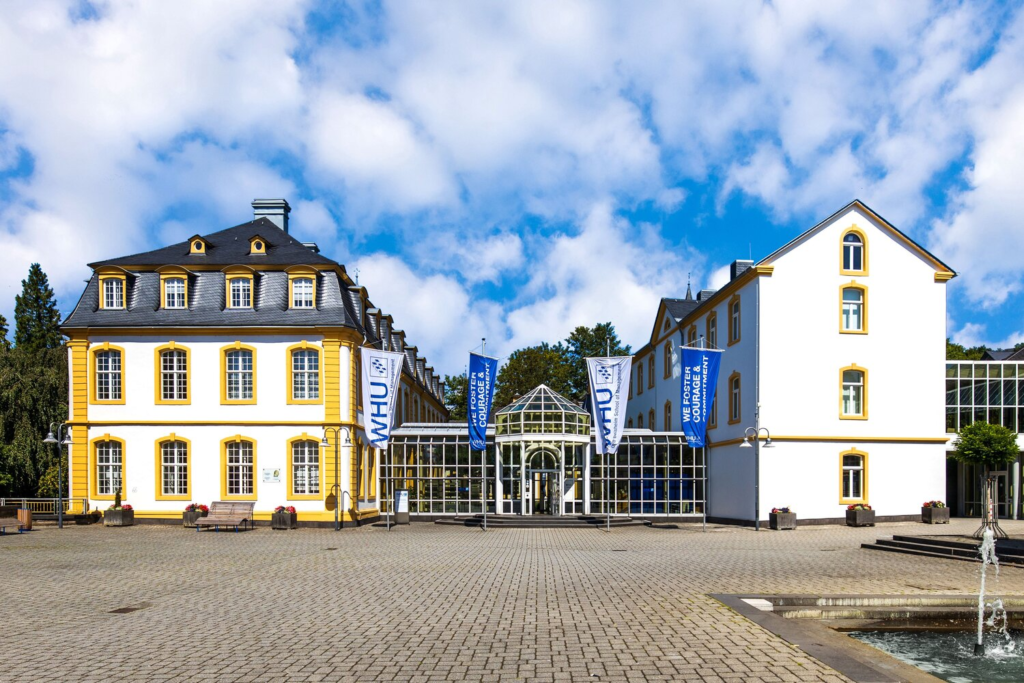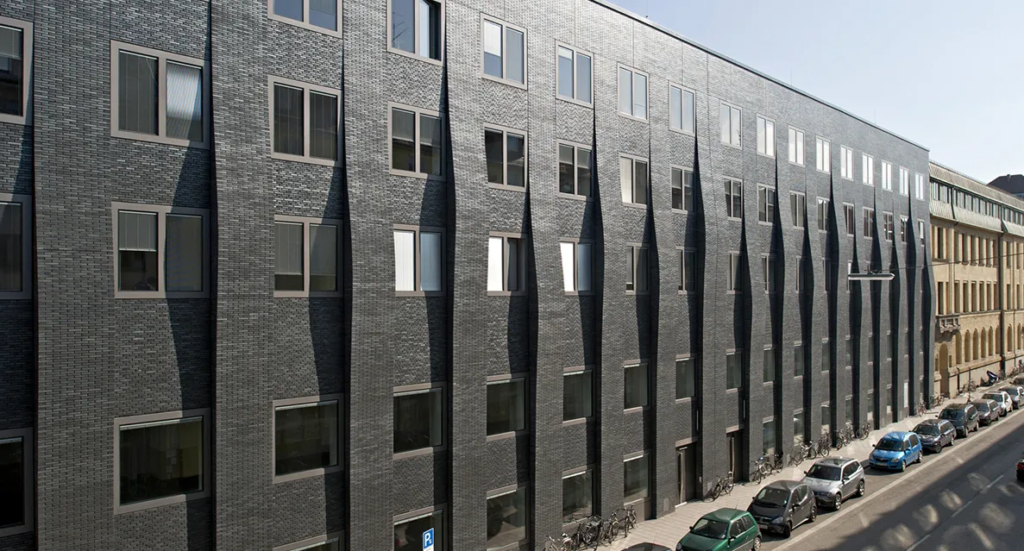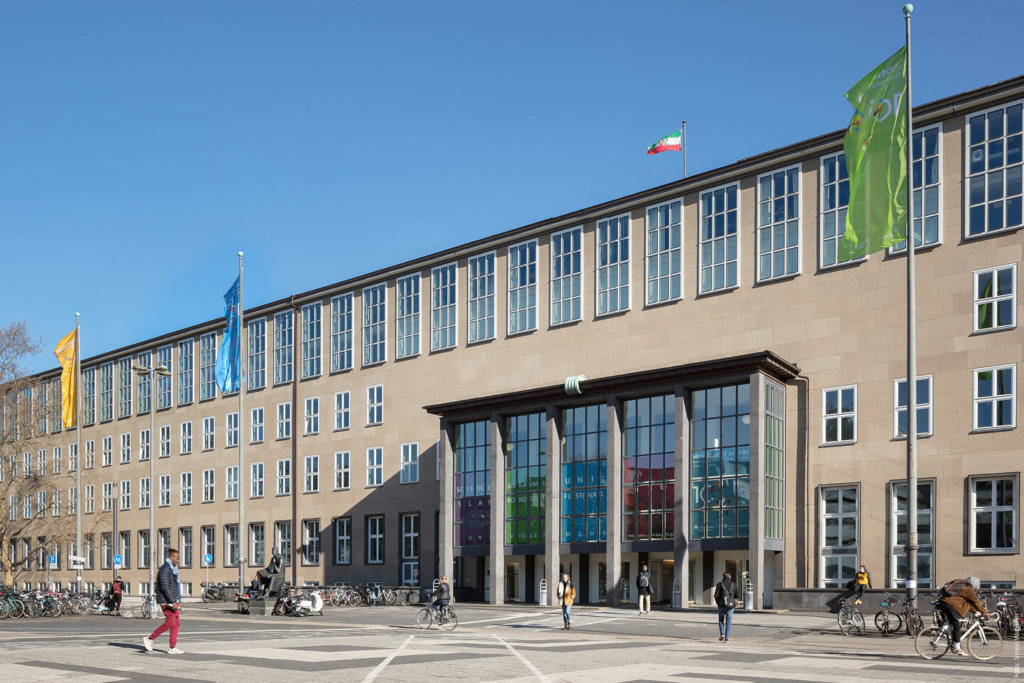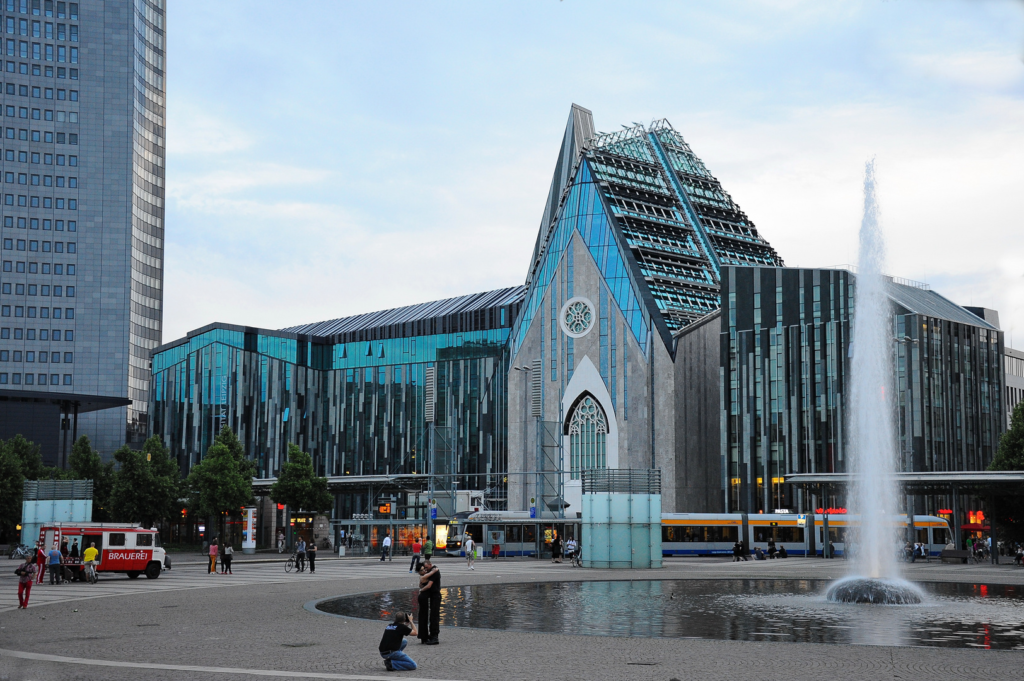Are you an Indian student with a bachelor’s degree looking to take your career to the next level with an MBA from a world-class institution? Have you considered the excellent MBA colleges in Germany? Germany has become a top destination for international students seeking quality education, especially in business and management. MBA colleges in Germany offer a perfect blend of academic rigor, practical experience, and global exposure. These institutions are known for their cutting-edge curriculum, strong industry connections, and multicultural learning environments.
For Indian students, MBA colleges in Germany present a unique opportunity to gain a world-class education at a fraction of the cost compared to other popular study abroad destinations. Many MBA colleges in Germany offer programs taught entirely in English, making them accessible to international students. Additionally, Germany’s strong economy and favorable post-study work opportunities make it an attractive choice for those looking to launch their international careers.
Top 10 MBA Colleges in Germany for Indian Students
Germany boasts some of the finest MBA colleges in Europe, offering world-class education and excellent career prospects. These MBA colleges in Germany are known for their rigorous academic standards, international focus, and strong industry connections. Let’s explore the top 10 MBA colleges in Germany that have consistently ranked high in global business school rankings and are popular among international students, including those from India.
1. WHU – Otto Beisheim School of Management
WHU – Otto Beisheim School of Management is one of the most prestigious MBA colleges in Germany. Located in Vallendar and Düsseldorf, WHU is renowned for its excellent faculty, innovative curriculum, and strong ties to the business world. The school offers full-time and part-time MBA programs that are highly regarded for their quality and practical approach. WHU’s MBA program focuses on developing leadership skills, entrepreneurial thinking, and a global mindset, making it an attractive choice for ambitious professionals seeking to advance their careers in international business.

| Aspect | Details |
|---|---|
| Ranking | #1 in Germany (Financial Times European Business School Ranking 2023) |
| Acceptance Rate | Approximately 30% |
| Post-Graduation Salary | Average of €101,000 per year |
| Notable Alumni | Mirco Wiegert (Co-founder of Fritz-Kola), Oliver Samwer (Co-founder of Rocket Internet) |
| Program Duration | Full-time MBA: 12 months, Part-time MBA: 18 months |
| Tuition Fees | Full-time MBA: €46,000, Part-time MBA: €42,000 |
| GMAT Requirement | Minimum score of 600 recommended |
| Work Experience | Minimum 3 years of professional experience required |
| Language of Instruction | English |
2. ESMT Berlin
ESMT Berlin is a top-tier business school located in the heart of Germany’s capital. As one of the leading MBA colleges in Germany, ESMT offers a diverse and international learning environment. The school’s MBA program is known for its focus on innovation, technology, and sustainable business practices. ESMT’s strong connections with German industry giants and startups provide students with unique networking and career opportunities.

| Aspect | Details |
|---|---|
| Ranking | #9 in Europe (Financial Times European Business Schools Ranking 2023) |
| Acceptance Rate | Approximately 35% |
| Post-Graduation Salary | Average of €95,000 per year |
| Notable Alumni | Yasser Jadidi (Vice President at Delivery Hero), Ulf Brackmann (CEO of Allianz X) |
| Program Duration | Full-time MBA: 12 months |
| Tuition Fees | €51,500 |
| GMAT Requirement | Average score of 650 |
| Work Experience | Minimum 3 years of professional experience required |
| Language of Instruction | English |
3. Mannheim Business School
Mannheim Business School, part of the University of Mannheim, is widely recognized as one of the top MBA colleges in Germany. Located in the business hub of Baden-Württemberg, Mannheim offers a rigorous MBA program that combines academic excellence with practical business insights. The school is particularly known for its strong focus on analytics and digital transformation in business.

| Aspect | Details |
|---|---|
| Ranking | #13 in Europe (Financial Times European Business Schools Ranking 2023) |
| Acceptance Rate | Approximately 40% |
| Post-Graduation Salary | Average of €92,000 per year |
| Notable Alumni | Carsten Knobel (CEO of Henkel), Jürgen Stackmann (Former Board Member at Volkswagen) |
| Program Duration | Full-time MBA: 12 months, Part-time MBA: 24 months |
| Tuition Fees | Full-time MBA: €39,500, Part-time MBA: €39,900 |
| GMAT Requirement | Average score of 640 |
| Work Experience | Minimum 3 years of professional experience required |
| Language of Instruction | English |
4. Frankfurt School of Finance and Management
The Frankfurt School of Finance and Management is a leading business school located in Germany’s financial capital. As one of the top MBA colleges in Germany, it offers a unique blend of finance and management education. The school’s MBA program is particularly strong in areas such as fintech, blockchain, and sustainable finance, reflecting Frankfurt’s status as a major European financial center.

| Aspect | Details |
|---|---|
| Ranking | #20 in Europe (Financial Times European Business Schools Ranking 2023) |
| Acceptance Rate | Approximately 45% |
| Post-Graduation Salary | Average of €88,000 per year |
| Notable Alumni | Theodor Weimer (CEO of Deutsche Börse), Asoka Wöhrmann (Former CEO of DWS Group) |
| Program Duration | Full-time MBA: 12 months |
| Tuition Fees | €43,000 |
| GMAT Requirement | Minimum score of 600 recommended |
| Work Experience | Minimum 2 years of professional experience required |
| Language of Instruction | English |
5. HHL Leipzig Graduate School of Management
HHL Leipzig is one of the oldest business schools in Germany and a top choice among MBA colleges in Germany. Known for its entrepreneurial focus, HHL has produced numerous successful startups. The school’s MBA program emphasizes leadership development, innovation, and entrepreneurship, making it an excellent choice for those looking to start their own businesses or lead corporate innovation initiatives.

| Aspect | Details |
|---|---|
| Ranking | #23 in Europe (Financial Times European Business Schools Ranking 2023) |
| Acceptance Rate | Approximately 50% |
| Post-Graduation Salary | Average of €85,000 per year |
| Notable Alumni | Ralf Rangnick (Former Manager of Manchester United), Timo Recker (Founder of LikeMeat) |
| Program Duration | Full-time MBA: 21 months, Part-time MBA: 24 months |
| Tuition Fees | Full-time MBA: €39,500, Part-time MBA: €37,500 |
| GMAT Requirement | Average score of 640 |
| Work Experience | Minimum 3 years of professional experience required |
| Language of Instruction | English |
6. TUM School of Management
The TUM School of Management, part of the Technical University of Munich, is one of the most innovative MBA colleges in Germany. It offers a unique MBA program that combines management education with a strong focus on technology and innovation. This makes it an ideal choice for those looking to lead in tech-driven industries or bring technological innovation to traditional sectors.

| Aspect | Details |
|---|---|
| Ranking | #25 in Europe (Financial Times European Business Schools Ranking 2023) |
| Acceptance Rate | Approximately 40% |
| Post-Graduation Salary | Average of €87,000 per year |
| Notable Alumni | Oliver Zipse (CEO of BMW), Rupert Stadler (Former CEO of Audi) |
| Program Duration | Full-time MBA: 24 months |
| Tuition Fees | €38,000 |
| GMAT Requirement | Minimum score of 600 recommended |
| Work Experience | Minimum 2 years of professional experience required |
| Language of Instruction | English |
7. University of Cologne – Faculty of Management, Economics, and Social Sciences
The University of Cologne’s Faculty of Management, Economics, and Social Sciences offers one of the most comprehensive MBA programs among MBA colleges in Germany. Located in one of Germany’s major economic centers, the school provides a solid foundation in general management with opportunities to specialize in various business fields.

| Aspect | Details |
|---|---|
| Ranking | #31 in Europe (Financial Times European Business Schools Ranking 2023) |
| Acceptance Rate | Approximately 55% |
| Post-Graduation Salary | Average of €80,000 per year |
| Notable Alumni | Carsten Spohr (CEO of Lufthansa), Martin Blessing (Former CEO of Commerzbank) |
| Program Duration | Full-time MBA: 17 months |
| Tuition Fees | €29,500 |
| GMAT Requirement | Minimum score of 600 recommended |
| Work Experience | Minimum 2 years of professional experience required |
| Language of Instruction | English |
8. EBS Business School
EBS Business School, located in Oestrich-Winkel and Wiesbaden, is one of the pioneering private business schools and a respected name among MBA colleges in Germany. EBS is known for its practice-oriented approach and strong corporate connections. The school’s MBA program emphasizes personal development and leadership skills alongside core business knowledge.

| Aspect | Details |
|---|---|
| Ranking | #35 in Europe (Financial Times European Business Schools Ranking 2023) |
| Acceptance Rate | Approximately 60% |
| Post-Graduation Salary | Average of €78,000 per year |
| Notable Alumni | Nico Rosberg (Former Formula 1 World Champion), Oliver Bäte (CEO of Allianz) |
| Program Duration | Full-time MBA: 12 months |
| Tuition Fees | €33,500 |
| GMAT Requirement | Minimum score of 600 recommended |
| Work Experience | Minimum 3 years of professional experience required |
| Language of Instruction | English |
9. GISMA Business School
GISMA Business School, with campuses in Berlin and Hannover, is a relatively young but rapidly growing institution among MBA colleges in Germany. GISMA offers a globally-oriented MBA program in partnership with Grenoble Ecole de Management, combining German efficiency with international business practices.

| Aspect | Details |
|---|---|
| Ranking | Not ranked in FT European Business Schools Ranking |
| Acceptance Rate | Approximately 70% |
| Post-Graduation Salary | Average of €70,000 per year |
| Notable Alumni | Information not publicly available |
| Program Duration | Full-time MBA: 12 months, Part-time MBA: 24 months |
| Tuition Fees | €25,000 |
| GMAT Requirement | GMAT or equivalent entrance test required |
| Work Experience | Minimum 3 years of professional experience required |
| Language of Instruction | English |
10. Leipzig University
Leipzig University’s MBA program, offered through the Leipzig Graduate School of Management, rounds out our list of top MBA colleges in Germany. This program stands out for its focus on sustainability and responsible leadership, reflecting growing trends in global business education.

| Aspect | Details |
|---|---|
| Ranking | Not ranked in FT European Business Schools Ranking |
| Acceptance Rate | Approximately 65% |
| Post-Graduation Salary | Average of €65,000 per year |
| Notable Alumni | Angela Merkel (Former Chancellor of Germany), Gottfried Wilhelm Leibniz (Philosopher and Mathematician) |
| Program Duration | Full-time MBA: 15 months |
| Tuition Fees | €15,000 |
| GMAT Requirement | GMAT or equivalent entrance test required |
| Work Experience | Minimum 2 years of professional experience required |
| Language of Instruction | English |
These top 10 MBA colleges in Germany offer a wide range of programs and specializations, catering to diverse career goals and interests. Each of these institutions provides a unique blend of academic rigor, practical experience, and international exposure, making Germany an excellent destination for pursuing an MBA.
MBA colleges in Germany fees
MBA colleges in Germany offer competitive tuition fees compared to many other countries, making them an attractive option for international students. Here’s a breakdown of the tuition fees for the top 10 MBA colleges in Germany:
| MBA College | Full-time MBA Tuition Fees (in Euros) |
|---|---|
| WHU – Otto Beisheim School of Management | 46,000 |
| ESMT Berlin | 51,500 |
| Mannheim Business School | 39,500 |
| Frankfurt School of Finance and Management | 43,000 |
| HHL Leipzig Graduate School of Management | 39,500 |
| TUM School of Management | 38,000 |
| University of Cologne | 29,500 |
| EBS Business School | 33,500 |
| GISMA Business School | 25,000 |
| Leipzig University | 15,000 |
Scholarships for MBA Colleges in Germany
Indian students pursuing an MBA in Germany have access to various scholarship opportunities. These scholarships can significantly reduce the financial burden of studying abroad. Here’s a detailed overview of some key scholarships available:
DAAD Scholarships:
- Provider: German Academic Exchange Service (DAAD)
- Amount: Full or partial funding
- Coverage: Monthly stipend of 850 euros, health insurance, travel allowance
- Number of awards: Varies annually, typically over 100 for Indian students
- Success rate: Approximately 15-20% for Indian applicants
Konrad-Adenauer-Stiftung Scholarships:
- Amount: 850 euros per month
- Additional benefits: 460 euros per semester for study and research costs
- Duration: Up to 24 months
- Number of scholarships: About 20 per year for international students
Frustrated with Generic College Lists from AI Tools?
Get a tailored college shortlist crafted by study abroad experts who understand YOUR goals, profile, and aspirations.

Heinrich Böll Scholarships:
- Amount: 850 euros per month
- Additional benefits: 100 euros per month mobility allowance
- Duration: Standard period of study (up to 2 years for MBA)
- Number of scholarships: Approximately 1,200 students supported annually
Frankfurt School of Finance & Management MasterCard Foundation Scholarship:
- Coverage: Full tuition fees and living expenses
- Eligibility: Specifically for students from developing countries
- Number of scholarships: Limited, highly competitive
HHL Leipzig Scholarships:
- Amount: Partial scholarships ranging from 5,000 to 10,000 euros
- Types: Merit-based, diversity, and women in business scholarships
- Number of scholarships: Multiple scholarships awarded each year
ESMT Berlin Scholarships:
- Amount: Partial scholarships up to 50% of tuition fees
- Types: Women in Business, Entrepreneurship, NGO/NPO scholarships
- Number of scholarships: Multiple scholarships available each intake
Bavarian Government Scholarships:
- Amount: 853 euros per month
- Duration: Up to 2 years
- Number of scholarships: 1,000 scholarships awarded annually
Deutschland Stipendium:
- Amount: 300 euros per month
- Duration: Minimum of two semesters, can be extended to standard period of study
- Number of scholarships: Over 28,000 students supported annually across Germany
Application Process for Scholarships:
- Research and identify suitable scholarships (start 12-18 months before intended study date)
- Check eligibility criteria carefully
- Prepare required documents (typically includes CV, motivation letter, recommendation letters, academic transcripts)
- Submit applications before deadlines (usually 6-12 months before program start)
- Undergo selection process (may include interviews)
Tips on Securing Scholarships:
- Maintain a strong academic record (most scholarships require a minimum GPA of 3.0 or equivalent)
- Gain relevant work experience (2-3 years is often preferred)
- Achieve a competitive GMAT score (aim for 650+)
- Demonstrate leadership skills and extracurricular involvement
- Craft a compelling personal statement highlighting your goals and motivations
- Apply to multiple scholarships to increase your chances
It’s worth noting that the acceptance rates for these scholarships can be quite competitive. For instance, the DAAD scholarships have an acceptance rate of around 15-20% for Indian applicants. However, the potential benefits make it worthwhile to apply to multiple scholarship opportunities.
Top Public Universities for an MBA in Germany
When it comes to pursuing an MBA in Germany, public universities often stand out for their affordability, world-class education, and robust industry connections. Germany’s public institutions are globally renowned for offering high-quality programs, especially in business and management, at significantly lower tuition fees compared to private schools.
Here’s a closer look at some of the best public universities offering MBA programs in Germany, their unique features, and why they’re worth considering:
| University | Program Name | Key Highlights | Tuition Fees (Approx.) |
|---|---|---|---|
| Technical University of Munich (TUM) | Executive MBA, MBA in Management & Technology | Renowned for tech-focused management programs, strong industry ties, and extensive alumni network. | €10,000 – €40,000 |
| University of Mannheim | Mannheim Full-Time MBA | Known for a business-centric curriculum and excellent placements in consulting and finance sectors. | €39,000 |
| Ludwig Maximilian University (LMU) | MBA in International Management | Offers an affordable, globally oriented program with a focus on strategic management and leadership. | €14,500 |
| Humboldt University of Berlin | MBA in Business Innovation | Strong focus on innovation and entrepreneurship, located in Germany’s startup hub, Berlin. | €20,000 – €25,000 |
| University of Cologne | MBA in Corporate Management | Features a well-rounded business curriculum with opportunities for international exchanges. | ~€30,000 |

Why Choose a Public University for Your MBA in Germany?
- Affordability: Public universities in Germany are heavily subsidized by the government, making them accessible even to international students.
- World-Class Education: German public universities are renowned for their academic excellence and focus on research-driven learning.
- Industry Connections: With strong links to global companies like BMW, Siemens, and SAP, these universities offer excellent internship and job opportunities.
- Cultural Diversity: Germany’s public universities attract students from around the world, creating a multicultural and enriching learning environment.
Part-Time Job Salary in Germany (As of 2024)
Many Indian students in MBA colleges in Germany take up part-time jobs to support their studies. Here’s an overview of part-time job opportunities and salaries:
| Job Type | Average Hourly Rate (in Euros) | Maximum Working Hours per Year |
|---|---|---|
| On-campus jobs | 9 – 12 | 120 full days or 240 half-days |
| Tutoring | 10 – 20 | 120 full days or 240 half-days |
| Hospitality | 9 – 15 | 120 full days or 240 half-days |
| Retail | 9 – 12 | 120 full days or 240 half-days |
| Research Assistant | 10 – 20 | Exempt from hour restrictions |
| Internships | 8 – 15 | Exempt if mandatory for studies |
Additional Information:
- Students can work up to 20 hours per week during semester
- Full-time work is allowed during semester breaks
- Minimum wage in Germany: 9.82 euros per hour (as of 2022)
- Income up to 450 euros per month is tax-free
- Students from non-EU countries need approval from the Federal Employment Agency and the Immigration Office for off-campus jobs
Average monthly earnings from part-time work: 300 – 800 euros
Percentage of international students working part-time: Approximately 60%
Conclusion
MBA colleges in Germany offer a compelling combination of academic excellence, affordability, and career opportunities for Indian students. With world-class programs, reasonable tuition fees, and various scholarship options, Germany presents an attractive destination for pursuing an MBA. While the cost of living and visa requirements need careful consideration, the potential for part-time work and post-graduation career prospects in Europe’s largest economy make it a worthwhile investment. As you explore these top MBA colleges in Germany, remember to weigh all factors – from program specifics to financial considerations – to make an informed decision that aligns with your career goals and aspirations.




